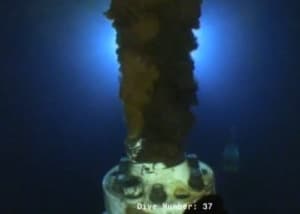Attorneys for Kurt Mix, a former engineer for BP, claim that a spate of previously unreleased emails will “exonerate” their client in the current criminal case being pursued against Mix. Mix is the first person in the wake of the Deepwater Horizon oil rig explosion and leak to be brought up on criminal charges for his role in the cover-up of the extent of the oil leak in the Gulf of Mexico.
Earlier this year, the U.S. Department of Justice formally charged Mix with obstruction of justice for allegedly destroying evidence, specifically text messages, relating to how much oil was flowing from the broken wellhead in the Gulf. The amount of oil flowing into the Gulf waters determined the size of the fines that BP would face from the federal government, so the company could have benefited substantially from under-reporting the true volume of the flow rate.
The new emails that will be released during Mix’s criminal trial allegedly show that Mix repeatedly warned his superiors at BP that they were under-reporting the true scope of the spill to the government and the media, undermining the federal government’s case against Mix. While these emails could show that Mix did the right thing in one arena, it is unlikely that it will “exonerate” him, as his attorneys claim. After all, the charges against Mix are for deleting text messages related to the disaster, which were evidence.
The one thing that is almost guaranteed from these emails, assuming they exist in the form that Mix’s attorneys are claiming, is that they could expose the cover-up by BP executives, and tell the story of how they intentionally misled everyone about the nature of their oil geyser. And given what we already know, it seems incredibly likely that the oil giant’s leadership knew from the start how much oil was flowing from the broken wellhead.
As I reported earlier this year:
During the initial days of the oil leak, BP was constantly updating their estimates of how much oil was flowing out of the broken pipeline. In spite of their advanced camera, computer, and other data technologies, they were somehow never able to give an accurate, or even close to accurate, account of what was happening beneath the water’s surface.
But it is hard to believe that BP couldn’t get an accurate count of what was coming out of that broken pipe, or even a reasonable rough estimate. After all, the company boasted in 2008 that they had developed technology that was capable of determining the flow rate of oil through a broken pipe – the very situation that was happening in the Gulf. They invented the technology, bragged about it, but when it would have actually been useful to deploy, BP claimed they couldn’t accurately measure the flow rate, and thus the scope of the disaster.
In November of this year, BP pleaded guilty to numerous criminal charges, one of which involved obstruction of justice for misleading Congress about the flow rate of the wellhead. The new emails could help shed light on who knew what, and how high up the corporate ladder the cover-up actually went.
Subscribe to our newsletter
Stay up to date with DeSmog news and alerts






